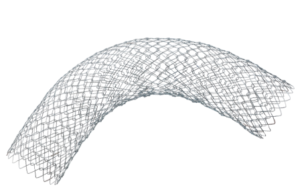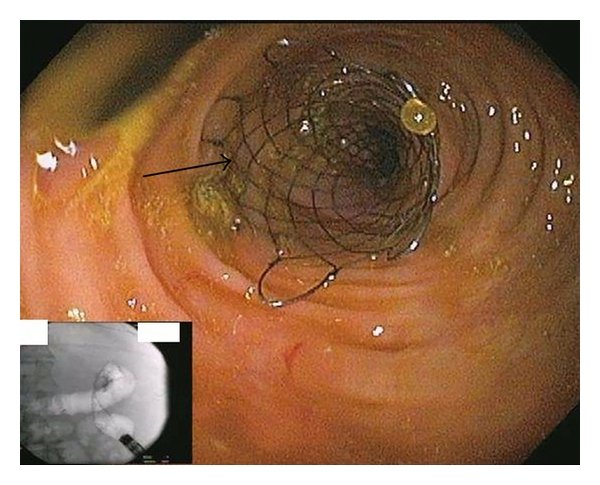Endoscopy Supplies
Gastroenterology
- Niti-S™ Self-Expandable Metal Stent
- RFA Treatment
- Solar™ GI High-Resolution Manometry Available In Canada
- Solid State Catheters Available in Canada
Available In The USA
Niti-S Self Expanding Metal Colonic Stents
Category: Colonic Stents

Understanding Colonic Stents: A Guide to Treating Bowel Obstruction and Bowel Cancer
Learn all about colonic stents and their role in treating bowel obstruction and bowel cancer in this comprehensive guide. Understand the effectiveness, longevity, and implications of colonic stents to make informed decisions about your medical treatment options. Whether you’re a patient or a caregiver, this article will provide valuable insights into this important aspect of gastrointestinal health.
What are Colonic Stents?
Colonic stents, also known as bowel stents, are tubular medical devices placed in the colon to relieve bowel obstruction or to facilitate the treatment of bowel cancer. These stents are designed to open up the blocked area in the colon, allowing for the passage of stool and relieving symptoms associated with the obstruction. In the case of bowel cancer, colonic stents can be used to alleviate symptoms and improve the patient’s quality of life.

How colonic stents are used in treating bowel obstruction and bowel cancer
Colonic stents are used as a minimally invasive alternative to surgery for treating bowel obstruction. They are inserted into the colon to widen the narrowed or blocked area, allowing for the resumption of normal bowel function. In the case of bowel cancer, colonic stents can be used to relieve symptoms such as abdominal pain, bloating, and constipation, thereby improving the patient’s comfort and overall well-being.
Benefits of Colonic Stents
Relieving symptoms of bowel obstruction
Colonic stents provide a non-surgical option for relieving the symptoms of bowel obstruction, such as severe abdominal pain, bloating, vomiting, and constipation. By opening up the blocked area in the colon, colonic stents can quickly alleviate these distressing symptoms, providing much-needed relief for patients.

Facilitating bowel cancer treatment
For patients with bowel cancer, colonic stents can be used to alleviate symptoms caused by the tumor’s obstruction of the colon. By relieving these symptoms, colonic stents can make the patient more comfortable and better able to tolerate further cancer treatment, such as chemotherapy or radiation therapy.
Improving quality of life for patients
Colonic stents can significantly improve the quality of life for patients with bowel obstruction or bowel cancer. By reducing symptoms and avoiding the need for more invasive surgical procedures, colonic stents can help patients maintain their normal activities and daily routines.
Procedure for Placing Colonic Stents
Preparing for the procedure
Before the placement of a colonic stent, patients may need to undergo imaging tests, bowel preparation, and fasting. The medical team will provide specific instructions to ensure the patient is well-prepared for the procedure.
The placement process
The placement of a colonic stent is typically performed using endoscopy or fluoroscopy guidance. During the procedure, the stent is inserted into the colon and expanded to open up the blocked area, restoring normal bowel function.
Recovery and aftercare
After the placement of a colonic stent, patients may experience some discomfort or minor side effects, such as bloating or mild abdominal pain. However, these symptoms usually resolve within a few days. Patients will be advised on dietary and activity restrictions during the recovery period and will have follow-up appointments to monitor the stent’s effectiveness.

Longevity and Effectiveness of Colonic Stents
How long colonic stents remain in place
Colonic stents can remain in place for varying lengths of time, depending on the patient’s condition and the underlying cause of the obstruction. In some cases, colonic stents may be permanent, while in others, they may be used as a temporary measure until further treatment can be pursued.
Effectiveness in relieving bowel obstruction and managing bowel cancer symptoms
Colonic stents have been shown to be effective in quickly relieving symptoms of bowel obstruction and improving the quality of life for patients. In the case of bowel cancer, colonic stents can effectively alleviate symptoms caused by the tumor’s obstruction, allowing for better tolerance of cancer treatment.
Potential complications and risks associated with colonic stents
While colonic stents are generally safe, there are potential risks and complications associated with their placement, including stent migration, perforation, and bowel perforation. Patients should be aware of these risks and discuss them with their healthcare team before undergoing the procedure.
Considerations for Patients and Caregivers
Understanding the implications of colonic stents
Patients and caregivers should have a clear understanding of the implications of colonic stents, including the potential benefits, risks, and expected outcomes. Open communication with the healthcare team is essential for making informed decisions about treatment options.
Making informed decisions about treatment options
When considering colonic stents as a treatment option, patients and caregivers should discuss the potential benefits and risks with their healthcare team. It’s important to weigh the advantages of symptom relief and improved quality of life against the potential risks associated with the procedure.
Support and resources for patients and caregivers dealing with colonic stents
Patients and caregivers dealing with colonic stents may benefit from support groups, counseling services, and educational resources to help them navigate the challenges associated with the procedure. Seeking out these resources can provide valuable support and information throughout the treatment process.
In conclusion, colonic stents play a crucial role in treating bowel obstruction and bowel cancer, providing a minimally invasive option for relieving symptoms and improving the quality of life for patients. By understanding the procedure, potential benefits, and considerations for treatment, patients and caregivers can make informed decisions about their medical options and access the necessary support and resources for their journey.
